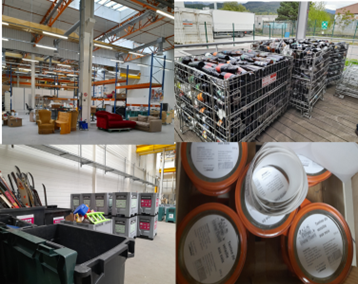Interregional learning with the SSH-Centre Project, Grenoble
Cork City Council were invited by the SSH- Centre (Social Sciences & Humanities for Climate, Energy aNd Transport Research Excellence) project to share Cork’s experiences of social engagement achieving resource efficiency, sufficiency, and circular economy in Grenoble on the 10th & 11th of April. The SSH-Centre project objectives are aligned with the objectives of the FEEL Project by encouraging community cooperation to foster energy and resource management in cities. The FEEL project aims to implement the concept in Cork by empowering citizens to take action and disseminating the benefits of a resource conscious lifestyle and circularity developed through the sufficiency concept.
Grenoble, a city surrounded on three side by the Alps is working to create a more resource considerate municipality. Announced as the Green Capital of Europe in 2022, the city is a hub of sustainability and efficiency with a target to be using 95% clean energy by 2030 through solar panels and biomass energy generation. In line with the objectives of the FEEL project, the SSH-centre project is aimed at creating a sufficient lifestyle using low-tech, sobriety measures to improve social innovation, STEM collaboration and empower citizens in demand reduction.
In a city with a high degree of sporting activities in proximity, the delegates at the meeting visited the revolutionary Recyclerie Sportive, a municipal led shop where citizens can visit to donate old unused sporting equipment like skis, clothing, roller skates, bikes, kayaks, and martial arts attire. Citizens can buy second- hand goods for a reduced price that are quality checked before sale The centre also offer training to people that want to learn how to maintain and repair their own bikes. Additionally, recycling is highly promoted in the city with designated waste streams for glass, toys, plastic, electronics, textiles, and food that can be batch cooked to last longer.
With invited representatives from cities across the European region in attendance, the meeting was the perfect opportunity to share experiences in developing a socially just, resource conscious, transition. From protecting green spaces, collaborative participation initiatives, circular economy actions, vegetable plots for citizens and energy advice hubs and developing a positive energy district, the actions implemented in Europe will go a long way to reducing emissions and improving social innovation for citizens.

